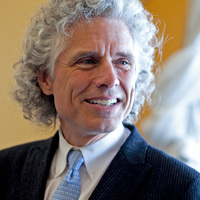Papers by claudine Kirsch
Zeitschrift für Grundschulforschung, Jun 11, 2024

International review of economics, Apr 6, 2024
Estimating the impact of COVID-19 on the multiple dimensions of child well-being requires quasi-r... more Estimating the impact of COVID-19 on the multiple dimensions of child well-being requires quasi-random variation in exposure to it, which is unlikely to occur during a pandemic. Recent developments in econometrics have highlighted the relevance of subjective evaluations of treatment effects in the absence of randomization. This paper delivers new evidence, based on primary data collected in Luxembourg in Spring 2021 about their subjective appraisal of the effects of COVID-19 on multiple dimensions of children's well-being. Effects are recovered through specific survey questions, asking children to compare actual outcomes with counterfactual ones, that they believe would have occurred in the absence of COVID-19. Children report negative effects of COVID-19 on subjective health and on schooling outcomes, as well as disruptions on the time used to interact with the family. The paper explores the sources of heterogeneity behind these results.

Routledge eBooks, Mar 4, 2020
Calls for multilingual pedagogies have reached early childhood education and some programmes have... more Calls for multilingual pedagogies have reached early childhood education and some programmes have been implemented in Europe. However, their focus frequently remains on the majority language and home languages are given little consideration. For multilingual programmes to be inclusive and empowering, professionals need to break with monolingual practices based on monolingual ideologies. The resource-oriented pedagogy of translanguaging is one way in which professionals can give space to all languages, leverage children's resources, and contribute to their development. This chapter presents the translanguaging pedagogy that early childhood professionals developed as a result of a professional development course in Luxembourg. Data stem from observations, video-recorded activities and interviews with four early years practitioners working in a preschool and a crèche. The findings show that the practitioners developed a positive stance towards translanguaging and multilingual education, learned to design a childcentred and holistic multilingual learning environment, and used languages flexibly, deploying translation, switches, and translanguaging. These dynamic language practices facilitated communication, participation, language learning, and well-being. There were differences between the practitioners' flexible language use. The professionals in the preschool did not use pair talk, switched less frequently to home languages, and used languages more strategically than the professionals in the crèche. The chapter gives insights into the implementation of translanguaging pedagogies in early childhood education multilingual contexts.

The pedagogies of multiliteracies and translanguaging (García et al., 2017) call for multiliterac... more The pedagogies of multiliteracies and translanguaging (García et al., 2017) call for multiliteracies, but early childhood educators are often ensure of how to develop practices in one, let alone multiple languages. The development of literacy skills is often reduced to the isolated training of phonological awareness or the letters of the alphabet. By contrast, storytelling is a holistic approach which contributes to the development of language and literacy skills (Sénéchal & Lefevre, 2001). It can promote multilingualism if multilingual speakers are involved (Kirsch, 2018). This presentation reports on the perspectives on multiliteracies of educators in crèches in multilingual Luxembourg, where 63.7% of the 4-year-olds do not speak Luxembourgish at home. Multilingual education became mandatory in 2017, requesting educators to develop Luxembourgish, promote French and value home languages. The mix-method project Collaboration with parents and Multiliteracy in early Childhood Education aims to develop literacy practices in multiple languages and with multiple actors (parents, educators) through professional development in crèches. In this paper we report the findings of interviews and a survey sent to 700 educators in May 2020. The latter were asked to identify literacy practices (e.g. storytelling), language-promoting strategies, and translanguaging practices. The data are analysed with thematic analysis and descriptive statistical analysis. The findings will contribute to our understanding of current ideologies, pedagogies, and practices, and help identify issues and possible ways forward
Lernen und Lehren in multilingualen Kontexten
Revue Quebecoise De Droit International, 2000
International Journal of Multilingualism, Mar 31, 2023
Journal of Childhood and Adolescence Research, Dec 19, 2022

There is a call for multilingual pedagogies including the use of literacy in several languages in... more There is a call for multilingual pedagogies including the use of literacy in several languages in early childhood education. However, many practitioners find it difficult to challenge the dominant language ideologies and are unsure of how to develop literacy practices in multiple languages. This paper is based in Luxembourg where a multilingual programme has been implemented in early childhood education in 2017. The research project examines the language used in daily communication and literacy activities of educators and parents in day-care centres, as reported by educators in two online-questionnaires. The findings show that the educators and parents use multiple languages when communicating, singing and reading with children in the centres. In addition to French and Luxembourgish which dominate, they use five other languages. Their reported multilingual practice reflects their beliefs that speaking and reading in several languages promotes language learning. However, while the programme is multilingual, a range of home languages are marginalised. The educators produce a language hierarchy in the centres in which the parents reproduce. While collaboration with parents can be effective in bringing home languages into day-care centres, educators need to be aware of language hierarchies and ideologies.











Uploads
Papers by claudine Kirsch